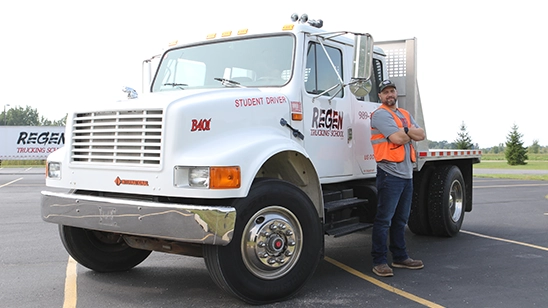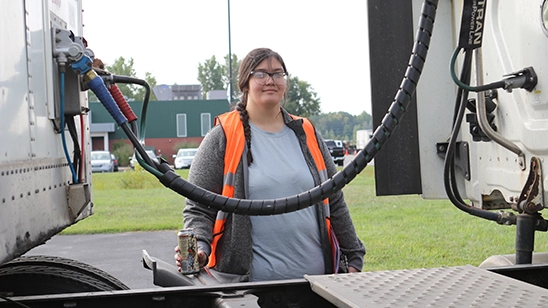"I enjoyed the class. It taught me a lot. Before the class, I wasn't able to double-clutch, but now it is second nature. Thank you for the opportunity to be a part of the CDL program." - Michael
"This class was very helpful in getting to learn more about how important safety, driving, and rules of the road are. I came into class thinking I would already know most of what was going to be covered, but I was wrong. I learned lots of new things when it came to inspections, driving, and overall rules of the road. Overall, this was a great experience. I would recommend this school to anyone trying to obtain their CDL". - Jordan
"Mid & Regen Trucking school, and my instructor, Adam, were great people. They taught me a lot and I'm glad that I was able to have 1-on-1 time with the instructor, which made it easier to learn." - Jake
"I learned a whole lot of information in a short time. The instructor does a very good job of teaching, and making it stick in your head and make sense." - Russell
"I'm very happy with the class. All together, Travis, the instructor did an amazing job with the computer part. Learned a lot. He was an amazing teacher. On the side, training was very knowledgeable. I built up my confidence really fast, and feel great moving forward. I would recommend to anyone." - Shawn
"I really felt amazing in training. Very prepared. And the instructors were amazing, very patient, and knowledgeable. I would definitely recommend this program to anybody that would like a CDL." - Nathaniel
"Taught me all the basics plus more that is needed and very useful for truck driving. I'm glad these guys were patient and very strategic to teach us their methods of driving. I think with what they taught me, I'll be just fine on the road. Lastly, I feel like my money was well spend. Thank you, guys." - Johns
"You learn a lot more than you think in just 2 weeks!" - Cole




